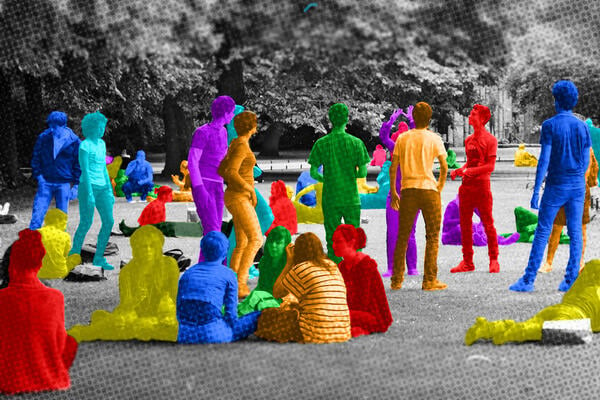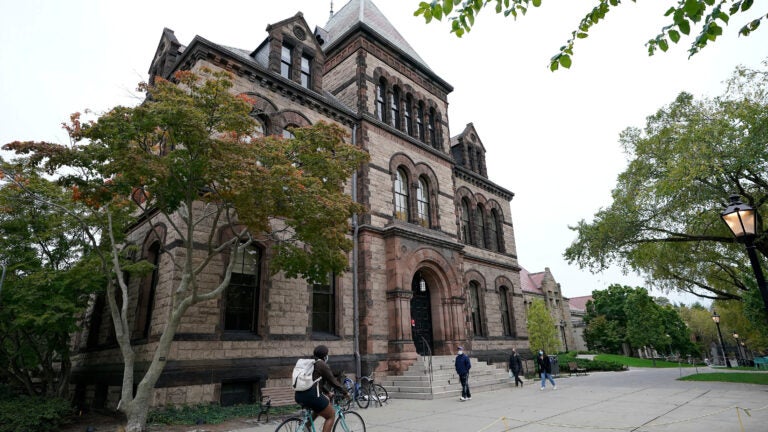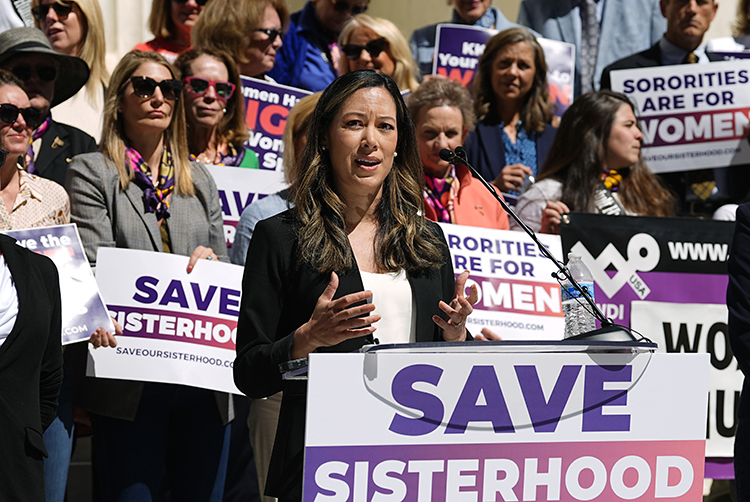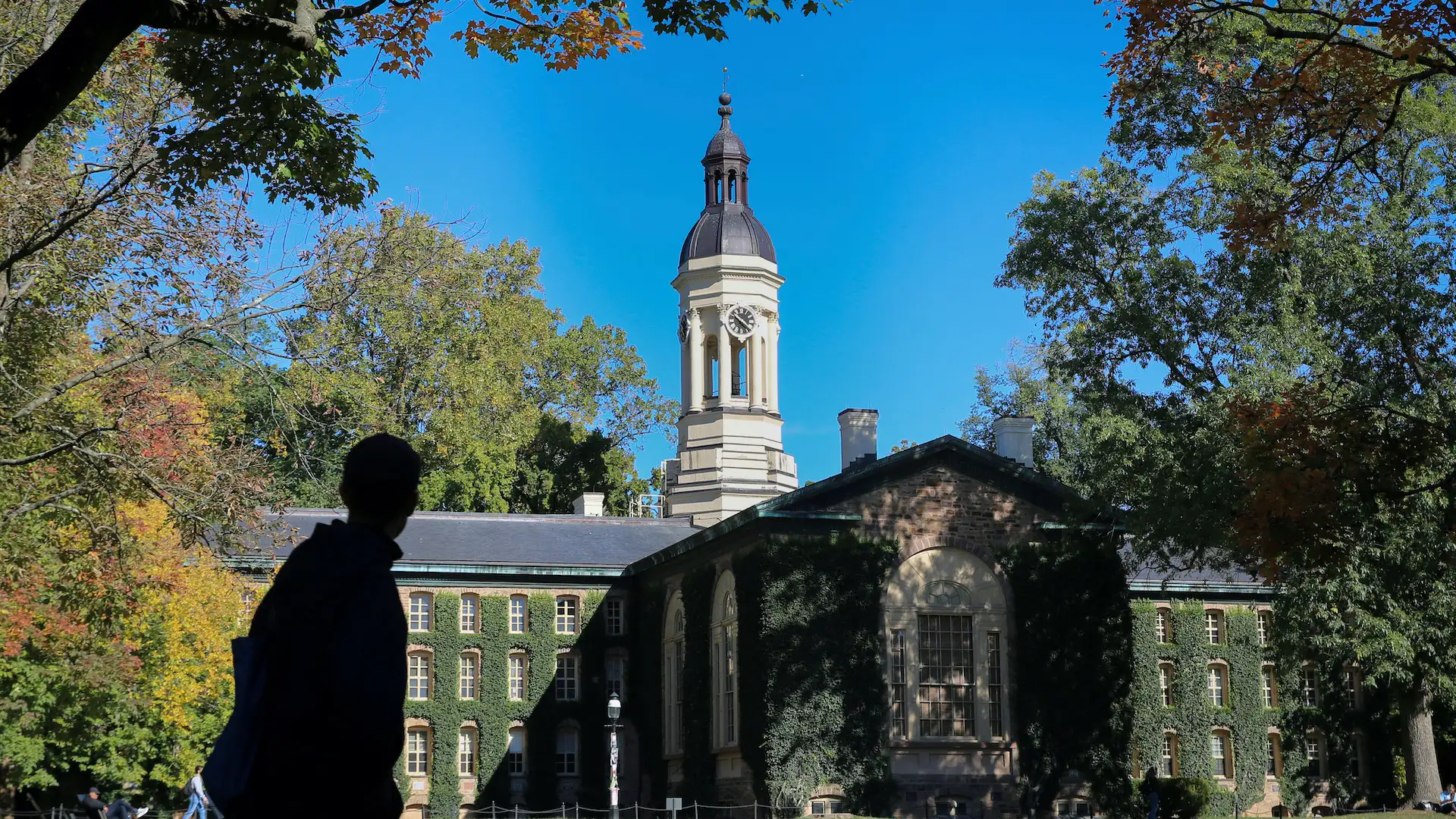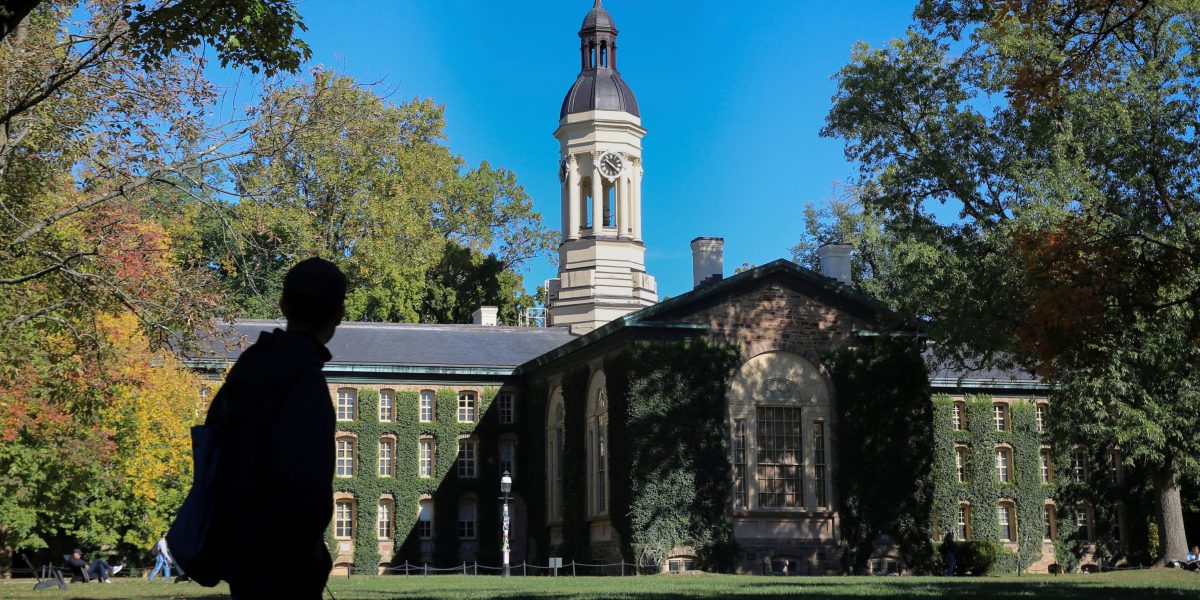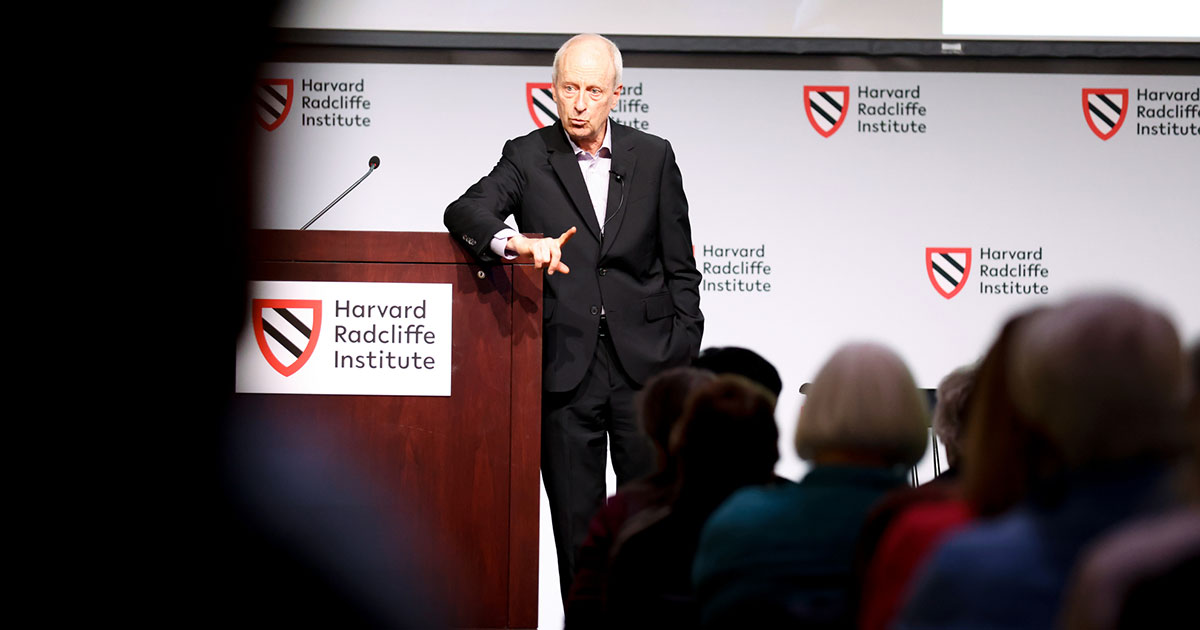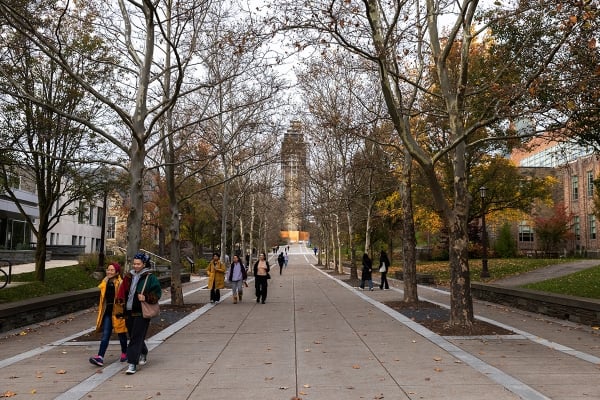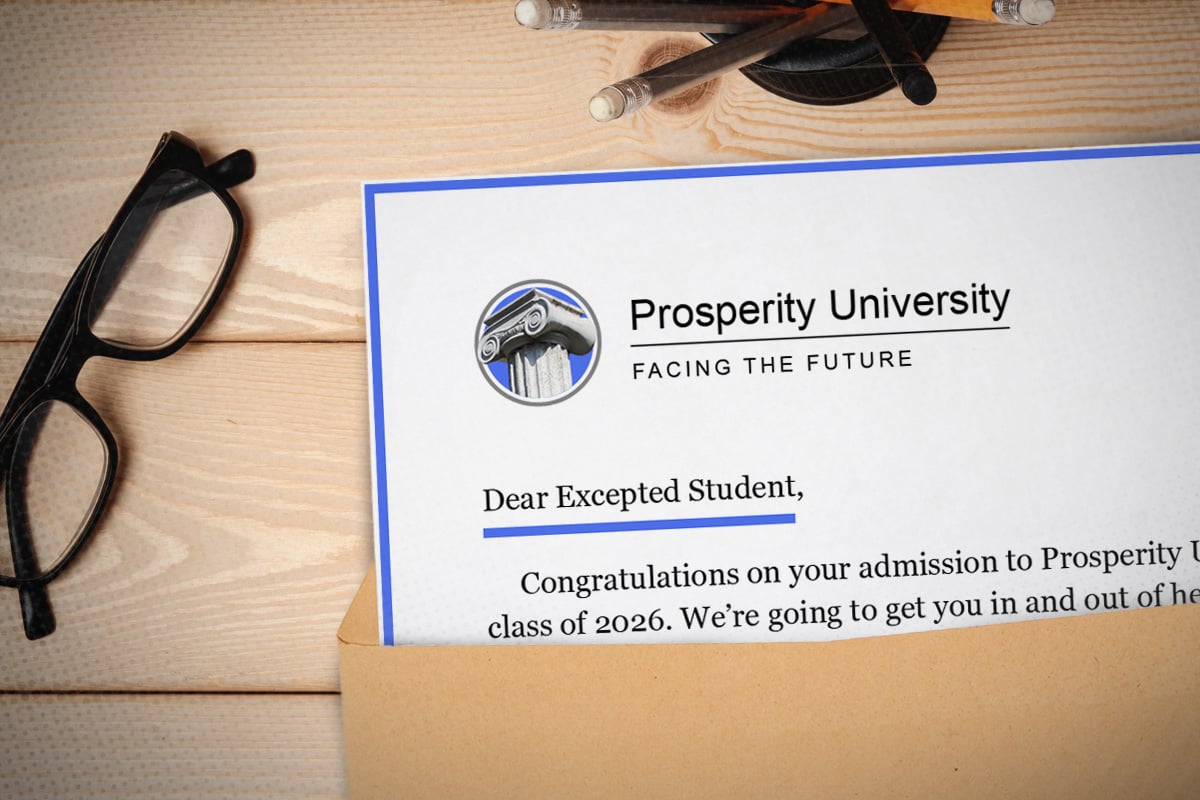#college-admissions
#college-admissions
[ follow ]
#higher-education #affirmative-action #financial-aid #meritocracy #higher-education-policy #enrollment-trends
Higher education
fromInside Higher Ed | Higher Education News, Events and Jobs
2 weeks agoTo Reach Students, College Marketers Prioritize AI Visibility
Large language models are becoming central tools in college search, helping students identify suitable schools, manage applications, and influence admissions decisions.
Higher education
fromSlate Magazine
4 weeks agoCollege Enrollment Is on a Steep Decline. For Incoming Freshmen, There's One Unexpected Benefit.
Colleges are expanding admissions offices' roles to guide accepted students through complex post-acceptance logistics to improve enrollment and student transitions.
Higher education
fromAlleywatch
1 month agoNerd Apply Raises $3.2M to Help College Counselors Guide Students with Real Admissions Data Instead of Guesswork
Nerd Apply aggregates 100,000+ de-identified admissions outcomes to help counselors benchmark applicants and make data-driven college-list and family conversations beyond ultra-selective schools.
fromTODAY.com
1 month agoWhat Activities Will Help Your Child Get Into College? An Expert Ranks Extracurriculars
The college admissions process seems more tedious, nebulous and overwhelming than ever ... which is why one college admissions expert is breaking down high school extracurriculars by the numbers. Kate Stone, founder of Kate Stone Prep, says that not all extracurricular activities are created equal. "Anything that thousands of kids are doing is always going to be less helpful for you," Stone tells TODAY.com. It's not that you should completely avoid popular extracurriculars, though. "It just means that you have to bring something creative or differentiated to it," she says. "Do the common activity in an uncommon way." On an Instagram reel that has earned almost 3 million views since it was posted in November, Stone ranks a handful of popular high school activities according to their value on an application for a top tier university. Stone goes into detail about what her rankings meant and gives her top tips for students looking at applying to elite colleges.
Higher education
fromThe Nation
2 months agoTrump's Anti-DEI Crusade Is Going to Hit White Men, Too
One of the best-kept secrets about DEI is that it helps men-that includes white men-get into college. If you do not work in admissions, you are likely unaware of this fact, and that's by design; one admissions officer even told The Wall Street Journal it's " higher education's dirty little secret." But it's been true for decades. Women's college enrollment surpassed men's all the way back in 1979, and the gender gap has only widened in the interim.
Higher education
US politics
fromwww.mediaite.com
2 months agoJD Vance Says He Hates Affirmative Action a Million Times More' Than Racist Insults Directed at His Family
Vice President JD Vance condemns white supremacist insults toward his family but prioritizes opposition to race-based affirmative action as the larger, systemic problem.
Higher education
fromFortune
2 months agoScott Galloway got mostly B's and C's in high school, never studied for the SAT, and had to try twice to get into UCLA. Now he's worth $150 million | Fortune
Scott Galloway overcame mediocre grades and an 1130 SAT to build a $150M career, later donating $16M to UCLA.
fromInside Higher Ed | Higher Education News, Events and Jobs
3 months agoSome Colleges Cut Diversity Essays, But They Remain Popular
Two years after the Supreme Court banned the use of race in college admissions decisions and in the wake of the Trump administration's attacks on diversity, equity and inclusion, colleges' use of diversity- and identity-related supplemental essay prompts is patchy. After a boom in prompts about applicant's identities, several universities have scrapped the essays entirely for the 2025-2026 admission cycle. Still others, especially selective universities, have kept the prompts, saying they are the best way to get to know their applicants.
Education
fromLos Angeles Times
3 months agoColleges ease the dreaded admissions process as the supply of applicants declines
The college admissions process has been so notoriously stress-inducing that students and their parents plan for it for years and - if social media is any indication - seem to consider an acceptance as among the greatest moments of their lives. But getting into college is in fact becoming easier, with admissions offices trying to entice more applicants from a declining pool of 18-year-olds. They're creating one-click applications, waiving application fees, offering admission to high school seniors who haven't even applied.
Higher education
Higher education
fromInside Higher Ed | Higher Education News, Events and Jobs
3 months agoUnderrepresented Applicants Grow, Foreign Applicants Drop
Applications rose among Black, low-income, first-generation, and rural students; international applicants fell, selective colleges saw smallest growth, and test submissions increased.
Higher education
fromBusiness Insider
3 months agoI'm a high school senior applying to over 20 colleges. I'm ignoring classic advice and don't care about appearing well-rounded.
Specializing in public speaking rather than trying to seem well-rounded builds expertise, renews motivation, and strengthens college applications.
fromThe Atlantic
4 months agoThe Logical End Point of Trump's Higher-Education Agenda
But the new higher-education compact offered to universities by the administration strongly suggests that Trump's higher-education agenda, if successful, will result in a far less diverse academy, with fewer Black and Latino students. It will do this by demanding that colleges adopt an admissions system based purely on test scores and GPA-and accusing any institution that resists of illegal racial preferences.
Higher education
fromInside Higher Ed | Higher Education News, Events and Jobs
4 months agoThe Erosion of Context in Admissions (opinion)
Indeed, the announcement by the College Board last month that it was discontinuing Landscape, a tool that provided admissions officers with data about a student's high school and neighborhood- including median family income, local college-going rates and school resources-was so alarming because it marks a pivot in selective college admissions away from understanding students' achievements in the context of their backgrounds and toward judging everyone by standardized metrics like GPA and test scores.
Higher education
Higher education
fromBoston.com
4 months ago'Yo, you got to go': Why more students from the Northeast are heading south for college
Many Northeastern students increasingly choose Southern universities for warmer weather, football culture, lower tuition, easier admissions, and a break from intense campus politicization.
fromWashingtonian - The website that Washington lives by.
4 months agoThe Best DC-Area Private High Schools to Enroll Your Child In
When Kathleen Glynn-Sparrow worked as a college counselor at Maryland private schools, she regularly fielded that query from prospective families at open houses. But Glynn-Sparrow, who also founded a company called the College Coaches, says that when it comes to choosing a private school, it should be less about the pipeline to any specific university than about choosing a school that will allow a student to flourish.
Higher education
Careers
fromInside Higher Ed | Higher Education News, Events and Jobs
4 months agoAdmissions Essays Written by AI Are Generic and Easy to Spot
AI-generated college admission essays are generic and easily distinguishable from human essays, and adding specific personal details often makes them sound more robotic.
fromInside Higher Ed | Higher Education News, Events and Jobs
4 months agoColleges Must Pursue All Legal Paths for Diversity (opinion)
Standardized test scores and GPAs never tell the whole story. Median family income, access to Advanced Placement courses, local crime rates and other key indicators help admissions officers see the full picture and provide crucial context to help identify high-achieving students from disadvantaged communities. These are students whom universities might otherwise overlook. Tools that give context level the playing field-not by lowering standards, but by lifting students up according to their merit and the obstacles they have overcome.
Higher education
Higher education
fromBusiness Insider
5 months agoI charge $25,000 to help students get into Ivy League colleges. Most teens are making the same mistake.
Students should identify core values and address community issues now to demonstrate meaningful, values-driven impact rather than accumulating activities and test scores.
fromSlate Magazine
5 months agoThey Got the College Acceptance of Their Dreams. When They Got to School, They Found a Nightmare.
Jessica Custer was the editor of her high school paper growing up in Hardwick, New Jersey. She was also a member of the biology team, the chemistry team, the chess club, and the debate club. That résumé got her accepted to a whole slew of prestigious colleges, including Georgetown, Princeton, and Harvard. But in 1995, she made a different choice, one that she believed would set her up for a bright future.
Higher education
fromInside Higher Ed | Higher Education News, Events and Jobs
5 months agoAt NACAC 2025, College Counselors Confront New Challenges
The president and the Republican Party have launched a relentless campaign for what they call merit-based admissions and against any aspect of the holistic admissions process they've deemed a "proxy" for race. The question of whether admissions professionals can continue do their jobs under those circumstances was a constant undercurrent of the 2025 National Association for College Admission Counseling conference last week. But despite the concerns of attendees, the association and many panelists sent a clear message that all hope isn't lost for the admission process as we know it.
Higher education
Higher education
fromInside Higher Ed | Higher Education News, Events and Jobs
5 months agoWhy Did College Board End Best Admissions Product? (opinion)
College Board discontinued Landscape, a race-neutral dashboard providing standardized high-school and community context to help admissions officers assess applicants and support low-income students' opportunities.
Bootstrapping
fromEntrepreneur
5 months agoWe Built a 7-Figure Business Without a Single Investor - Here's Why Saying No to VC Was Our Smartest Move | Entrepreneur
Bootstrapping enabled Prepory to grow into a seven-figure, global college admissions company with nearly 100 employees and 14,000 students without outside investors.
fromInside Higher Ed | Higher Education News, Events and Jobs
5 months agoCollege Board Ends Tool to Share Geographic Context With Colleges
"As federal and state policy continues to evolve around how institutions use demographic and geographic information in admissions, we are making a change to ensure our work continues to effectively serve students and institutions,"
Higher education
Education
fromInside Higher Ed | Higher Education News, Events and Jobs
6 months agoFree College Admissions Counseling for Cancer Survivors
National GRACE Foundation provides free college admissions and financial aid guidance to childhood cancer survivors and families to improve enrollment and reduce barriers.
fromScary Mommy
7 months agoCollege Admissions Scammer Is Out Of Jail & Advising Students Again
In March 2019, Rick Singer pled guilty to federal charges-including racketeering conspiracy, money laundering conspiracy, conspiracy to defraud the United States, and obstruction of justice-for his role in what was widely-publicized as the 'Varsity Blues' college admissions scheme.
Education
Higher education
fromFortune
8 months agoThis millennial was rejected from 200 jobs-now he makes millions charging wealthy families six-figures to get their kids into the Ivy Leagues
Christopher Rim's success demonstrates resilience and innovation in college admissions consulting, helping students achieve their Ivy League dreams despite initial setbacks.
Parenting
fromPsychology Today
9 months agoHere's How Parents Can Manage College Admissions Anxiety
College admissions pressure negatively impacts teens' mental health.
Parents also experience significant stress around college admissions.
Changing communication about college can reduce pressure on teens.
[ Load more ]



